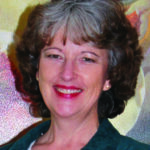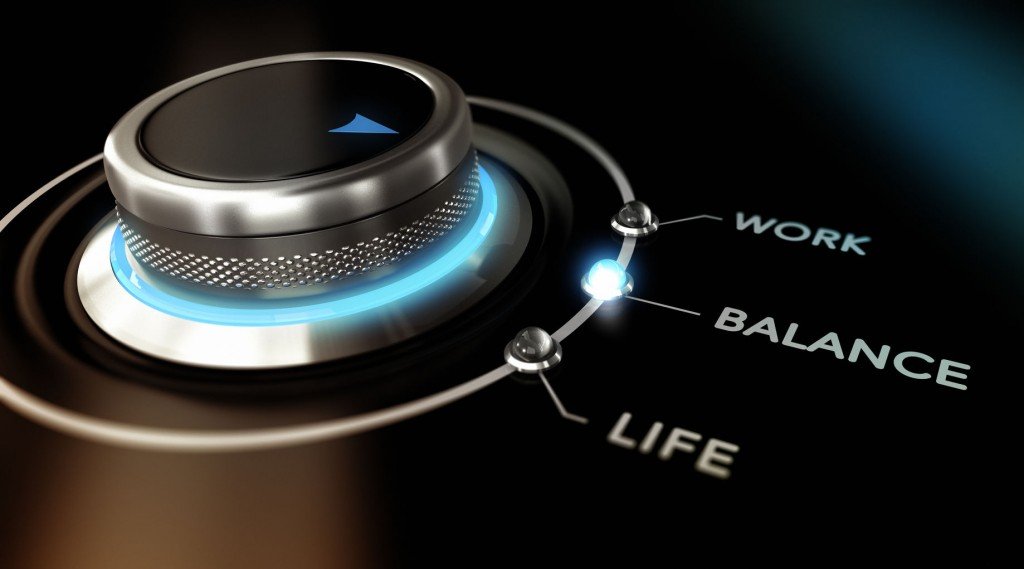Steps for NDs to Avoid the Risk of Workaholism
Donna L. Beck, ND
We are told “mind over matter.” We are admonished “no pain–no gain!” When a child falls down, we assert: “That didn’t hurt! Come on. Buck up!” We repeat these powerful phrases to one another on a regular basis and adhere to them as if they were a required tenet for life. As a result, our society has become deeply entrenched with the message “don’t listen to your body!” As you will see herein, a physician did exactly that, with dire consequences. First, let us examine the epistemological and etymological origins of these phrases.
“Mind over matter” was popularized in the 1960s and 1970s in reference to the paranormal, especially the psychokinetic, phenomenon. It referred to mind-centric spirituality and philosophic doctrines (eg, “the mind is more powerful than the body”).1 In the 1990s, the phrase was reshaped by motivational speaker Tony Robbins2,3 to encompass the power of concentration and positive thinking, expanding its use from spiritual domains to business, personal success, and self-growth realms.
“No pain–no gain,” a close cousin to “mind over matter,” spread through American culture in 1982, when Jane Fonda popularized aerobics.4 It became the de facto slogan for health-oriented adults,5 mandating that they must endure pain during exercise to achieve athletic excellence. In 2005, David B. Morris, PhD, noted: “No Pain-No Gain is an American modern mini narrative: it compresses the story of a protagonist who understands that the road to achievement runs through hardship.”6 He related this phrase to professional achievement as well.
Today, coaches, personal trainers, and even some physical therapists still routinely use the no pain–no gain premise to design programs that teach people to override their bodies’ innate pain and discomfort signals. Together, mind over matter and no pain–no gain are philosophies now strongly entrenched in our fast-paced technology-driven culture. These messages have contributed to a cultural ethos that defines one’s physical and professional success. This ethos encourages us to minimize or ignore our bodies’ voice so that we can push ourselves to unhealthy limits. It also causes us to scoff at those who do listen to their bodies.
The Price of Productivity in Overachievement and Workaholism
In the past 2 decades, the increased use of instant-access mobile technology has accelerated our tendencies toward widespread overachievement and workaholism. According to the third annual Osterman Research Survey, investigators found an increasingly mobile workforce and continued reliance on e-mail connectivity.7 The results were compiled from a survey of 312 respondents. A notable outcome is that people are uncomfortable when they are not constantly connected to their work and personal e-mail, to the point where they interrupt meals and daily activities to check e-mails. They survey found that 83% admitted to checking e-mail after work and that 66% took a work-related device on vacation. Another publication noted that 50% of smart phone users sent e-mail during a meal, and 65% e-mailed when waiting in a grocery line.8
Ray Williams,9 cofounder of Success University (Phoenix, Arizona) and president of Ray Williams Associates (Vancouver, British Columbia, Canada), writes about the “overachieving professional” and our society’s current workaholic tendency in his Wired for Success blog. Psychology Today published an article by Williams in April 2011 titled “How Workaholism May Be the Price We Pay for Productivity.”9 Williams proposed that Ronald Reagan was wrong when he said that “hard work never hurt anyone.” He notes that the Japanese word for “death from overwork” is karoshi and the Chinese call it guolaosi. These countries are now beginning to track death statistics related to workaholism.10 Williams points out that no equivalent word exists in English but there probably should be given the face of mounting evidence. For example, study10 findings by the Hidden Brain Drain Task Force published in the December 2006 Harvard Business Review outlined conclusions about Americans’ obsession with work. The study revealed that Americans are working harder than ever and that the 40-hour workweek is an artifact of the past. In fact, the 60-hour workweek is commonplace. Williams cites several other investigations and reports that profile American work excess and its health effects. He asserts:
Overachieving professionals today are seen as road warriors—masters of the universe. They work harder, take on endless responsibilities and earn a lot more than their counterparts in earlier times, and their numbers are growing. And it is these individuals who bring into clear focus the question of work-life balance. The concept (Overachieving Professionals) was first coined in 1986 in reaction to unhealthy choices many Americans were making in favor of work. A hundred years ago the pundits were forecasting that technology would not only do away with household chores but provide us with unlimited leisure. That prediction has not come to pass. Instead the work ethic has been elevated to unprecedented heights which reinforce the low value attached to family, parenting, and building community amid a radical redefinition of the nature of work.9
Some parts of the “overachieving professional” label do not sound all that bad. “Master of the universe” certainly stokes the ego. Who does not want to earn more money? Other apparent and operative personal drivers are likely at work in today’s overachiever at the personal and professional levels, including altruism, passion for one’s endeavors, and enjoyment of the work itself, to name a few. At the other end of the spectrum, it may be fear that motivates a person toward hyperachievement and all work, with no play. It is a daunting challenge for these professionals to consider not succeeding or not achieving.
Today’s wavering economy and the threat of not keeping pace with market trends add to the fear list. Each of us must closely examine what drives us because for whatever reason, conscious or subconscious, the evidence is mounting that in a given day or week people are working much too hard and too long, under chronically stressful or threatening conditions. In patient after patient, it is my observation that the cost of chronic overwork and stress is the significant, observable, and measurable erosion of their personal health.
Are Physicians at Risk for Workaholism?
Despite our extensive training in the “natural ways of healthy living,” NDs are not immune to overachievement and workaholism. In fact, at a time when we must strive ever more diligently to establish our professional relevancy and win political recognition, I propose that we could qualify as one of the more at-risk professions when it comes to this issue.
I humbly admit that I had time to contemplate this topic after being forced to slow down my own overachieving behavior. I was doing what I loved in my life’s work, maintaining a full-time practice, mentoring my new associate, teaching NDs to-be, hosting preceptors in my practice, giving weekend tutorial seminars, making public presentations, and volunteering for professional service to support the advancement of my beloved profession. At home, I was being a fully engaged wife, mother, and grandmother. I was maintaining a large organic garden and being an all-around home executive. To top it off, I was working out at the gym 3 or more times per week. I suddenly found myself sitting (actually lying) completely still, with 2 bulging discs in my neck.
What had happened to me? My body had been trying to tell me for months to slow down, but I had overridden those deep voices of my body’s wisdom in lieu of my mind’s will (and my heart’s passion!). I was now incapacitated. It was one of the most anxiety-producing times of my life. I was required to lie still, to do no work, and to heal. The healer had to practice her own medicine to heal. However, a shrill small voice was sounding all kinds of alarms. Would I matter any longer? How would I work? As I begin my 20th year practicing as an ND, I can boldly testify that my recent experience is exactly what I needed to learn how to become a healthier person and a better physician.
So, all you overachieving professionals, I propose the following question: How do we create and promote a healthy work-life balance in the medical profession? How do we forge ahead boldly without making ourselves sick from overwork? We cannot impart “truths” to our patients that we do not apply to ourselves.
How many health-related problems could be avoided if we were taught, and collectively encouraged by one another, to create space to listen to our bodies and do what they say? What if we not only noticed and experienced awareness of our bodies’ often subtle signals but also had the opportunity and the ability to choose to respond fully to these messages before they became medically relevant? By this simple prescription of listening and responding, we can make major contributions to solving insidious conditions like obesity, autoimmune disease, addiction, chronic fatigue, generalized anxiety, depression, and the adrenal deregulation epidemic that we now see in ourselves and in our patients. Would people experience fewer illnesses and injuries? Would we slow down the aging process? Would we increase life spans? I believe so.
We need to slow down and heed the wisdom of our bodies. To do so is in line with naturopathic principles of health. One of our most important principles tells us that given the right conditions the body will heal itself. Our bodies will clearly speak to us about those conditions. The first “prescription” that the physician should write for a patient is one that includes strategies to support setting boundaries against overachievement and chronic overwork. In my personal and professional experience, patients cannot follow any other part of a wellness plan until they have worked out strategies to give themselves a healthy schedule aligned with their bodies’ own natural rhythms.
Accomplishing Work-Life Balance
Accomplishing work-life balance requires several steps. These include the following:
First, we must put on a new lens for ourselves and for our patients, one that is the opposite of fear. We must learn to view life through the lens of mindfulness and self-love to reshape our foundational thinking and develop new messages, for ourselves first, our patients next, and then for the collective change in consciousness.
Second, we must accept as fact that the adoption of a slower and more rhythmic pace is not a sign of weakness. We must mirror this to one another, and we have to facilitate and uphold a healthy workweek, allowing room for the agenda of both mind and body.
Third, most important is the courage and steadfast planning required to construct a healthier work-life balance in the face of current workplace pressures and challenges and our culture’s incessant messages. We need to work differently, establishing more sustainable work rhythms. We may have to cut back and do less. This could require the acceptance of less income, to ensure more time for rest and other nurturing aspects of life. Some people may need to negotiate their schedules within the workplace, or they may have to quit their jobs altogether and find new, more supportive work environments. For the sake of robust health, we may need to adopt whole new philosophies for our personal lives that include embracing simpler lifestyles. We must address our fears, our addictive tendencies, and our judgments of self and others. We may need to let go of some old dreams that no longer serve us and form new healthier ones. Relationships may have to change. We must construct strong boundaries against the “techno-trap” lifestyle, for life around us encourages us to join the stampede.
Fortunately, each of us has a built-in voice to help us define our own personal limits. Our body will tell us when we are doing too much. Physicians possess the skills to teach others to interpret these messages and to help construct plans for listening and being true to the body’s needs. We have the knowledge, skills, and perspective to promote and model a healthier work-life balance and to push for new trends in healthful living.
 Donna Beck, ND received her doctorate from the National College of Natural Medicine (NCNM), Portland, Oregon. She is founder and owner of A Family Wellness Center in Portland, where she has provided naturopathic primary care for 20 years. Special foci include nutritional and lifestyle counseling, hormone and endocrine balancing, and naturopathic manipulative therapy. She has taught as an adjunct faculty member at NCNM for 16 years and currently serves on NCNM’s board of directors. She also collaborates with a local university, where she teaches K-12 classroom teachers about natural health principles and how to create healthy classroom ecology.
Donna Beck, ND received her doctorate from the National College of Natural Medicine (NCNM), Portland, Oregon. She is founder and owner of A Family Wellness Center in Portland, where she has provided naturopathic primary care for 20 years. Special foci include nutritional and lifestyle counseling, hormone and endocrine balancing, and naturopathic manipulative therapy. She has taught as an adjunct faculty member at NCNM for 16 years and currently serves on NCNM’s board of directors. She also collaborates with a local university, where she teaches K-12 classroom teachers about natural health principles and how to create healthy classroom ecology.
References
Berger A, Berger J. The Encyclopedia of Parapsychological and Psychical Research. New York, NY: Paragon House; 1991.
Robbins A. Awaken the Giant Within: How to Take Immediate Control of Your Mental, Emotional, Physical and Financial Destiny. New York, NY: Simon & Schuster; 1992.
Robbins A. Unlimited Power: The New Science of Personal Achievement. New York, NY: Simon & Schuster; 1997.
Wigmore B. As workout video queen Jane Fonda gets a new knee, did she take fitness too far? June 18, 2009. http://www.dailymail.co.uk/tvshowbiz/article-1194087/As-workout-video-queen-Jane-Fonda-gets-new-knee-did-fitness-far.html. Accessed April 13, 2012.
DiPasquale C, Courtney C, eds. No pain, no gain: the competitive nature of Americans may be leading to a rash of yoga injuries. January 15, 2003. http://articles.chicagotribune.com/2003-01-15/news/0301160043_1_yoga-journal-yoga-teachers-injuries. Accessed January 20, 2012.
Morris DB. Belief and narrative. Scientist. 2005;19 (suppl 1):s14. http://classic.the-scientist.com/article/display/15359/. Accessed April 13, 2012.
Hohlbaum CL. Redefining the workaholic in our digital age: workaholism has taken on a new meaning in our 24/7 world. November 22, 2011. http://www.psychologytoday.com/blog/the-power-slow/201111/redefining-the-workaholic-in-our-digital-age. Accessed January 3, 2012.
PRNewswire. Neverfail mobile messaging trends study finds 83 percent of users admit to using a smart phone to check work email after hours. November 22, 2011. http://www.prnewswire.com/news-releases/neverfail-mobile-messaging-trends-study-finds-83-percent-of-users-admit-to-using-a-smartphone-to-check-work-email-after-hours-134314168.html. Accessed April 13, 2012.
Williams RB. How workaholism may be the price we pay for productivity. April 17, 2011. http://www.psychologytoday.com/blog/wired-success/201104/how-workaholism-may-be-the-price-we-pay-productivity. Accessed January 3, 2012.
Hewlett SA, Luce CB. Extreme jobs: the dangerous allure of the 70-hour workweek. Harv Bus Rev. 2006;84(12):49-59, 162.





